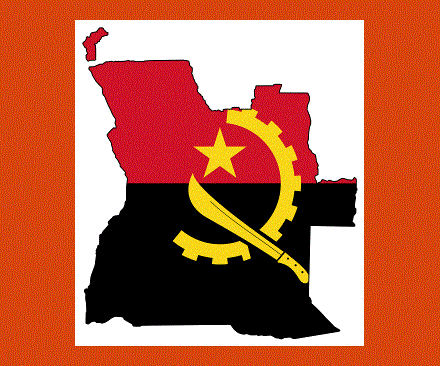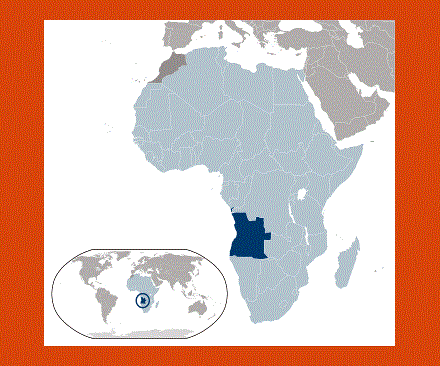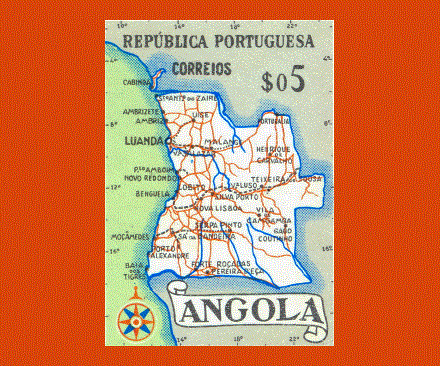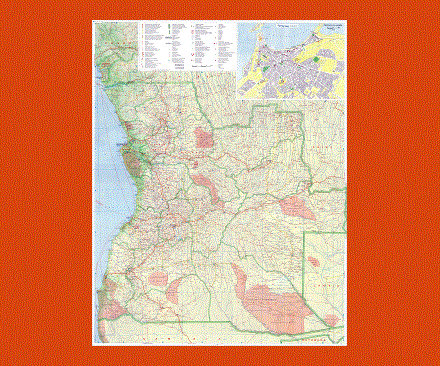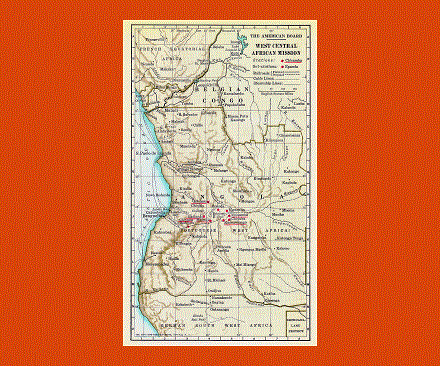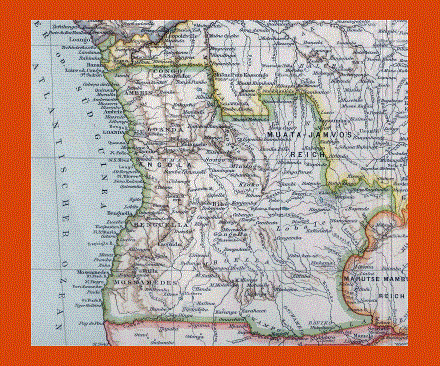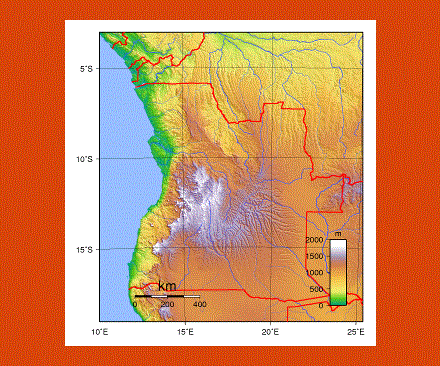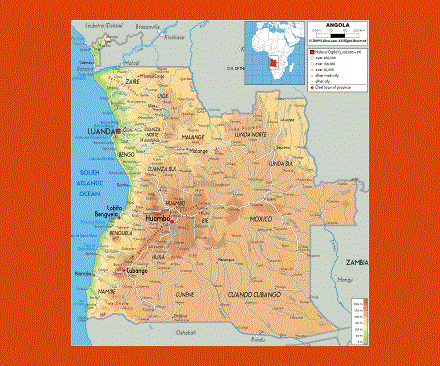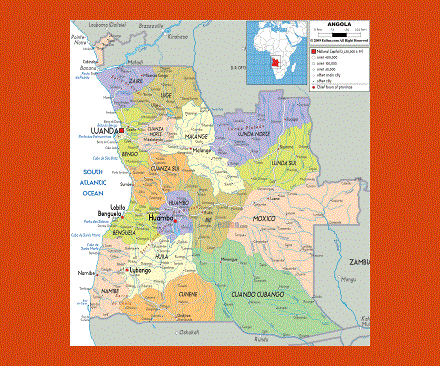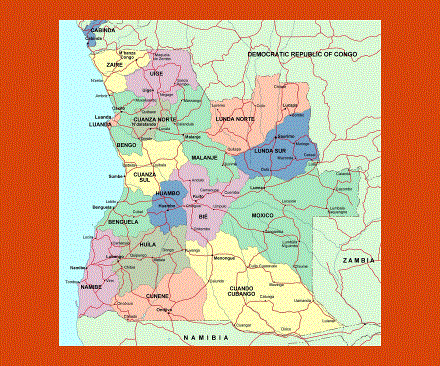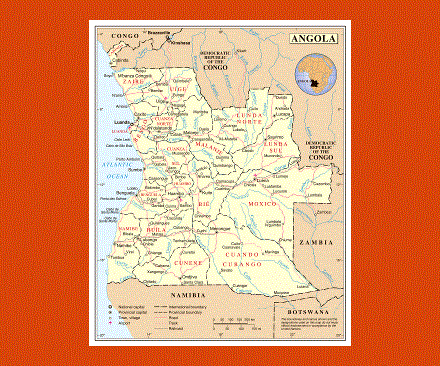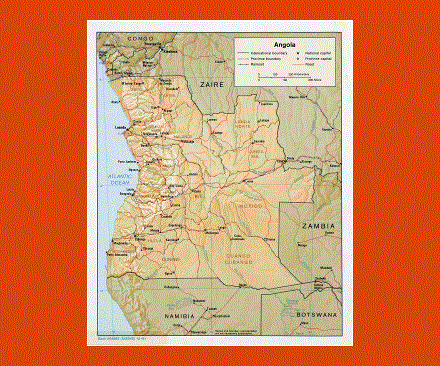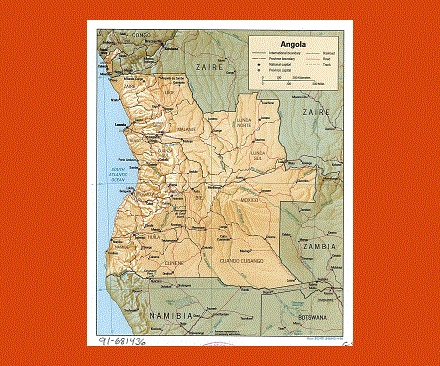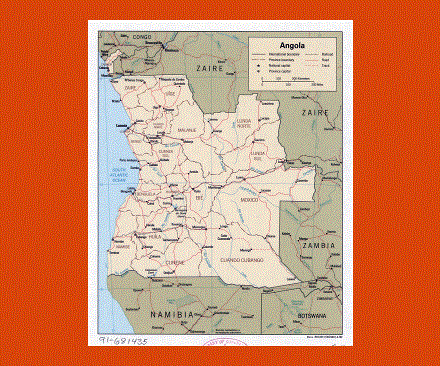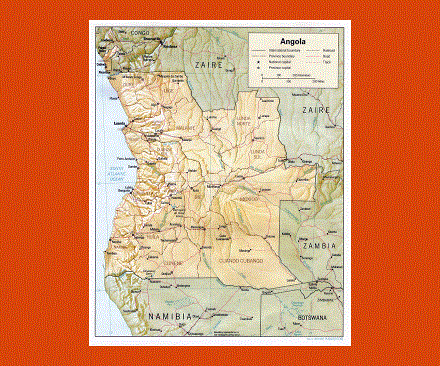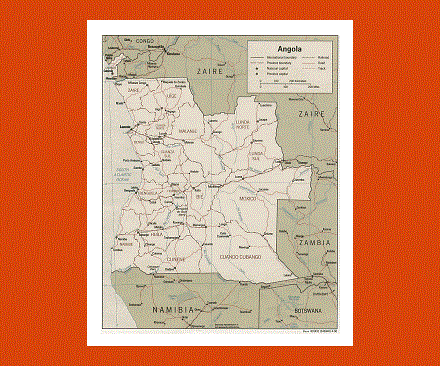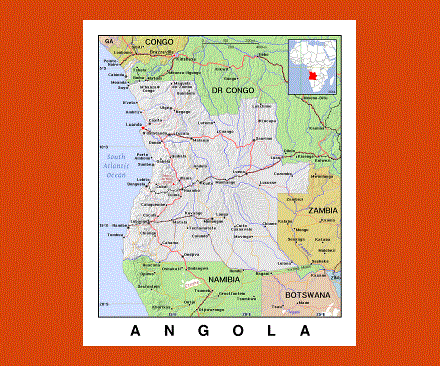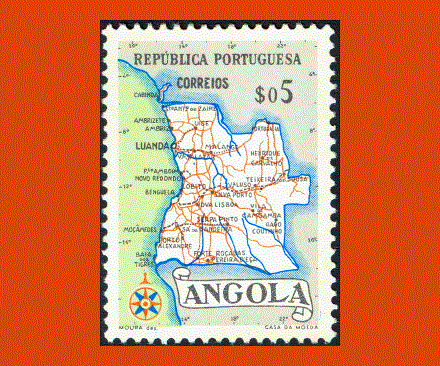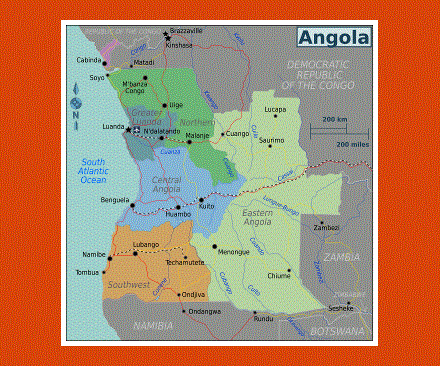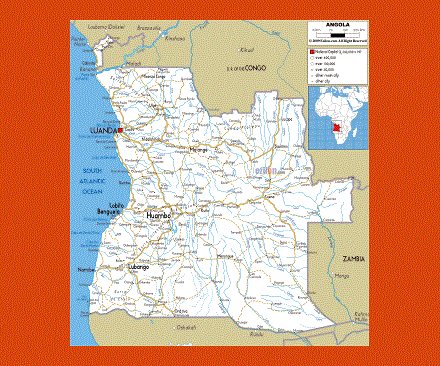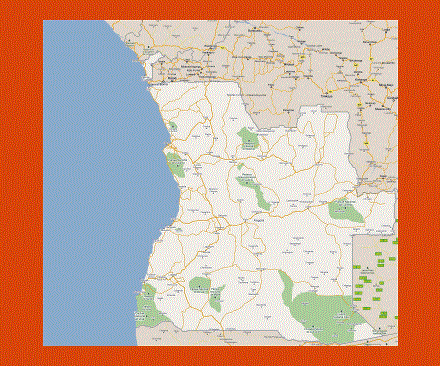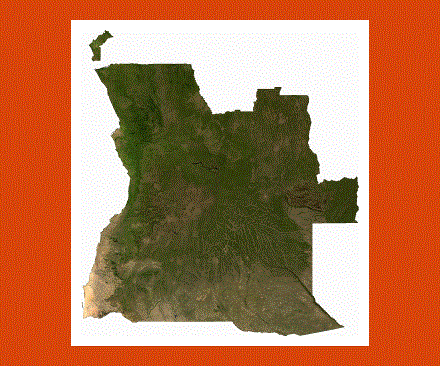Maps of Angola
Angola lies in Southwestern Africa bordering Zambia, Namibia and the Republic of Congo. To the west, Angola looks out onto the Atlantic ocean from its mountainous heights that level onto a plateau, which forms most of the country's land. With Luanda as its capital, the country has suffered much ware fare in the past years, mainly due to its rich oil deposits just off the coast, which are the country's primary resource.
To the south towards the Namib Desert the land is extremely arid, while the northern plateau is rich in vegetation, with streaming rivers and thick forests teeming with African wildlife, namely the black palanca antelope, which is a species unique to Angola.
There are countless breathtaking sites not to miss, such as the Calandula Waterfalls, in the Malanje area, where the scenery is particularly majestic during the rainy season.
The Palmeirinhas area offers splendid views over long and deserted beaches stretching for over 45km along the south coast, although bathing is dangerous.
There are numerous forts dotting the coast, amongst which you may visit the Fort Sao Miguel, built in 1789 as a slave prison and residence for the Portuguese community.
Languages spoken in Angola are Portuguese, being the official language, while other African languages such as Umbundu, Kimbundu, Kikongo are spoken by most of the population.
The climate varies greatly from the north to the south, the north being hot and rainy during the summer months (November to April), while winters (May to October) are drier and cooler. In the south the temperature remains hot throughout the year, being slightly cooler in the winter.
The people from Angola are called Angolans.

